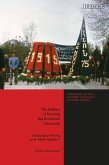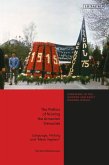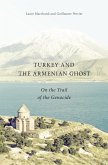How is official denial of the Armenian genocide maintained in Turkey? In this book, Hakan Seckinelgin investigates the mechanisms by which denial of the events of 1915 are reproduced in official discourse, and the effect this has on Turkish citizens. Examining state education, media discourse, academic publications, as well as public events debating the Armenian genocide, the book argues that, at the public level, there exists a 'grammar' or 'repertoire' of denial in Turkey which regulates how the issue can be publicly conceptualised and understood. The book's careful analysis examines the way that knowledge about the genocide is censored in Turkey, from the language that must be used to publicly discuss it, to the complex way in which selective knowledge and erased history is reproduced, from 1915 and subsequent generations until today. It argues that denialism has become important to a certain kind Turkish national identity and belonging - and suggests ways in which this relationship can be unpicked in future.
Bitte wählen Sie Ihr Anliegen aus.
Rechnungen
Retourenschein anfordern
Bestellstatus
Storno









